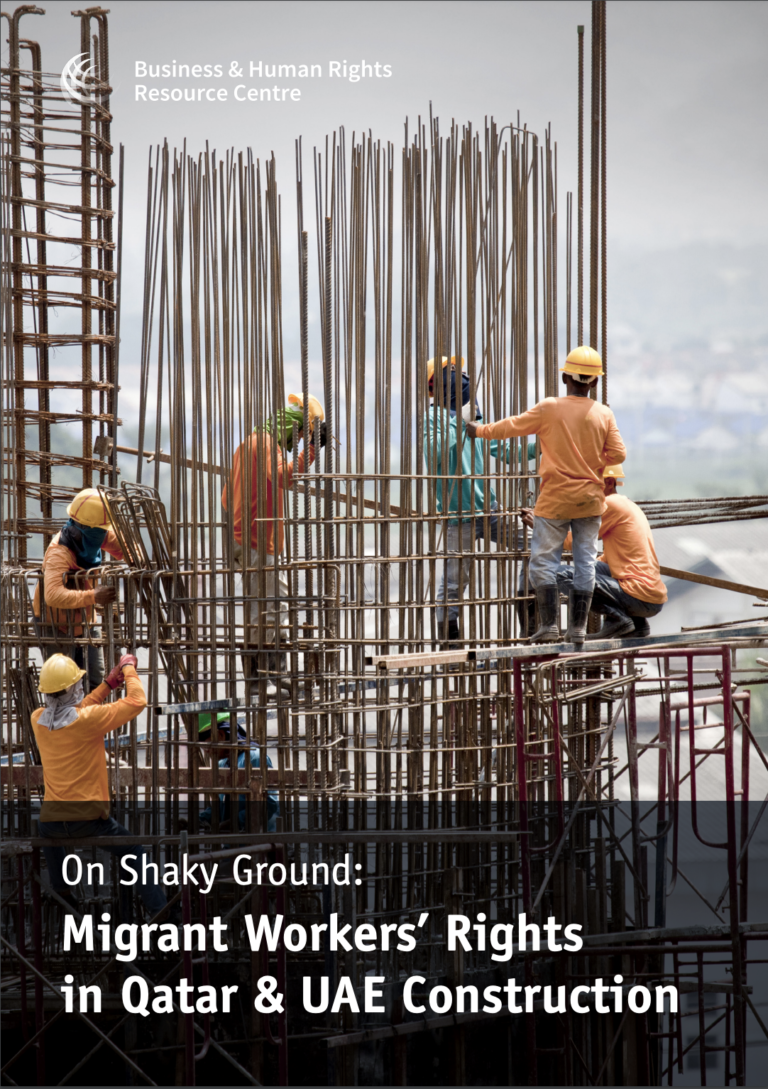Prompted by international scrutiny of working conditions on flagship projects in Qatar and the UAE, in 2016, the Business & Human Rights Resource Centre surveyed construction companies on their approach to safeguarding migrant workers’ rights in both countries.
Two years on and with a second survey, the findings show that while a consistent but small group of construction companies demonstrate real commitment to tackling the risks to migrant workers in their operations, the overwhelming majority operate with high risks to human rights and continued disregard for workers’ welfare. In both years, more than 70% of surveyed companies did not respond and over 60% did not have a public commitment to human rights.
This briefing analyses the survey responses and public human rights commitments of construction companies with current projects in the region and makes recommendations to companies, clients and governments to advance the rights of migrant workers.

